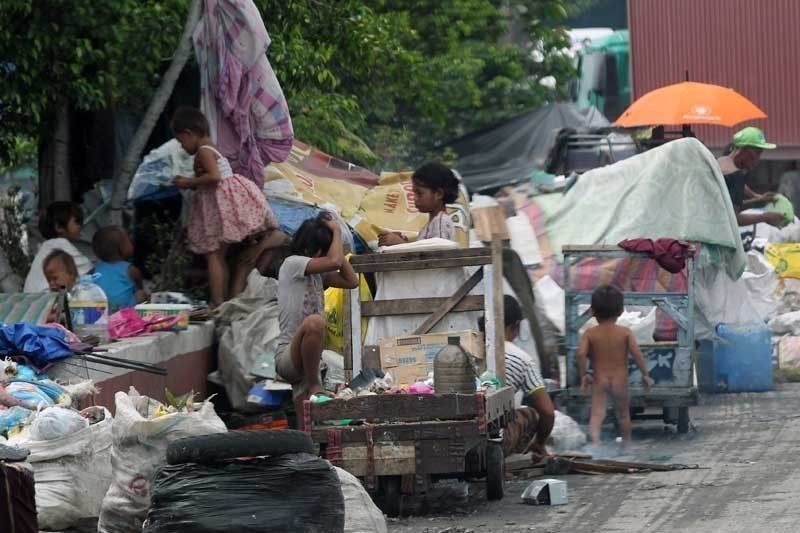Back to basics: Turning to agro-industrial solutions to address food insecurity, hunger

To be food poor is the most profound and deeply felt kind of poverty of all. Food, after all, is the most basic among human needs.
Here in the Philippines, the food crisis is palpable. The latest Social Weather Stations survey conducted between June 28 and July 1 this year showed that 34% of families rated themselves as food-poor, while 38% said they were between being food-poor and not food-poor. Just 29% of families said they were not food-poor.
Being food poor is intimately linked with hunger. The SWS also reported that in the second quarter, some 10.4% of Filipino families had the very real experience of feeling involuntary hunger at least once in the three months preceding the survey. Breaking this number down, 8.3% said they experienced moderate hunger while 2.1% felt severe hunger.
Indeed, Filipinos continue to grapple with the high prices of basic commodities. According to the PSA, food contributed 58.3% to the overall inflation in September 2023. Food inflation also rose to 10.0% from 8.2% in the previous month. This acceleration was primarily due to the higher inflation for rice.
In another survey, this time by Pulse Asia and conducted in September 2023 revealed that controlling inflation was the top concern of nearly three in four (74%) of Filipinos, regardless of their geographic location and socio-economic class. This number represented a staggering increase of 11 percentage points from the previous quarter.
Being a fully developed, vibrantly service-driven, consumption-powered, and technologically enabled economy is good. This path has allowed the Philippines to gain its rightful place in the global BPO industry, and to be among the most active and engaged internet users in the world.
Unfortunately, the pandemic heightened our gaps and vulnerabilities. For instance, the economy suffered when mobility was restricted as a means to curb the spread of the virus. Because we were reliant on imported goods, most common of which was food and other basic supplies, supply chain disruptions caused price surges that made survival even more difficult for many Filipinos.
This was – and still is – exacerbated by our vulnerability to weather and other disturbances, rendering our food production unstable and oftentimes, laying to waste precious harvest.
The administration is still trying to make good on its promise to bring the prices of basic goods down during these difficult times. However, it is always good to try other approaches when the usual solutions seem to stall at providing results.
It is high time that we explored the potential of the manufacturing sector as it applies to the domestic market. Manufacturing for export has been extremely helpful to our economy; it has brought us much-needed dollar revenue and allowed the Philippines to make its mark in the global market.
Still, there is much room for manufacturing for domestic consumption, specifically in the agro-industrial sector, to ensure that more Filipinos get access to food items and at affordable prices, because they are produced here right within our country.
In light of the escalating demand for agricultural products, President Marcos Jr., in a recent pronouncement, has emphasized the necessity for the Philippines to transition towards industrialized agriculture and strongly advocated for a self-sufficient nation in terms of food production.
“Given the high population density and the worsening geopolitical situation, we are facing a significant challenge. These factors underscore the urgency of our efforts to ensure that the Philippines can independently sustain its population,” President Marcos Jr. said.
This will not be achieved overnight. Investments need to be encouraged further, and for this, we have to cultivate an environment that is conducive to starting and running a business. More than consumption, investments are a more strategic source of economic growth because with investments come capital, infrastructure, and jobs. As more people find sources of income, they would be in a better position to cover their families’ needs and improve their quality of life.
By encouraging investments in manufacturing, particularly in the agro-industry sector, government and businesses can ensure consumers a consistent and reliable supply of affordable essential goods, especially food. This will help prevent sudden price spikes, ensure greater access to necessary commodities, and maintain food security for the population.
Amid rising inflation and persistent hunger among the populace, it is essential to prioritize measures that safeguard consumers from the detrimental impacts of various economic challenges, especially those that affect essential commodities like food.
Conversations on how to work better together for investments in manufacturing, especially in the agro-industry, will be helpful as we look at ways to address long-standing gaps in our economy. In the long run, this will mean greater security that there will be adequate food on the table, three times a day, for the sustenance of every Filipino family.
Lawyer Karry Sison is a convenor at Bantay Konsyumer, Kalsada, Kuryente.
- Latest




























